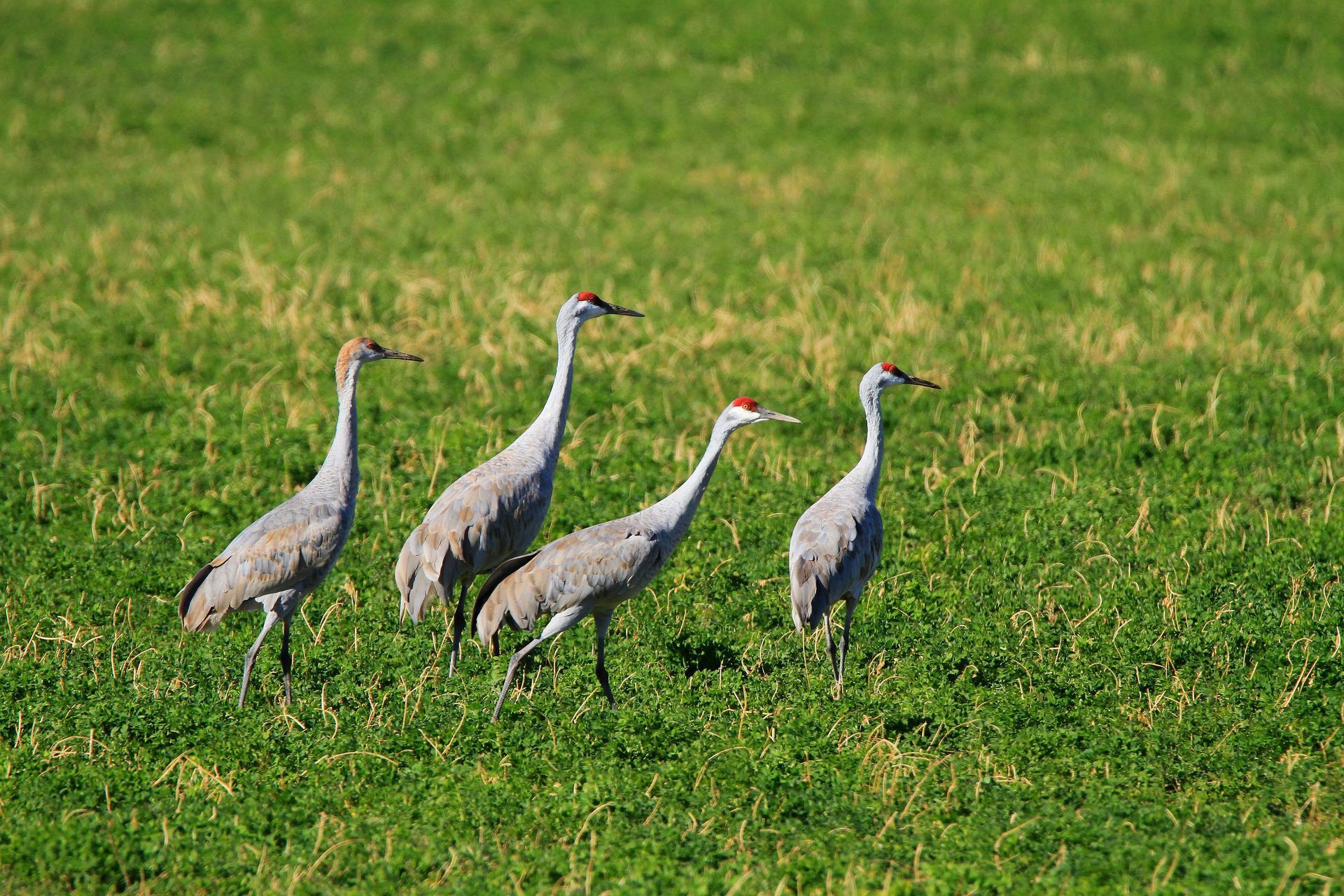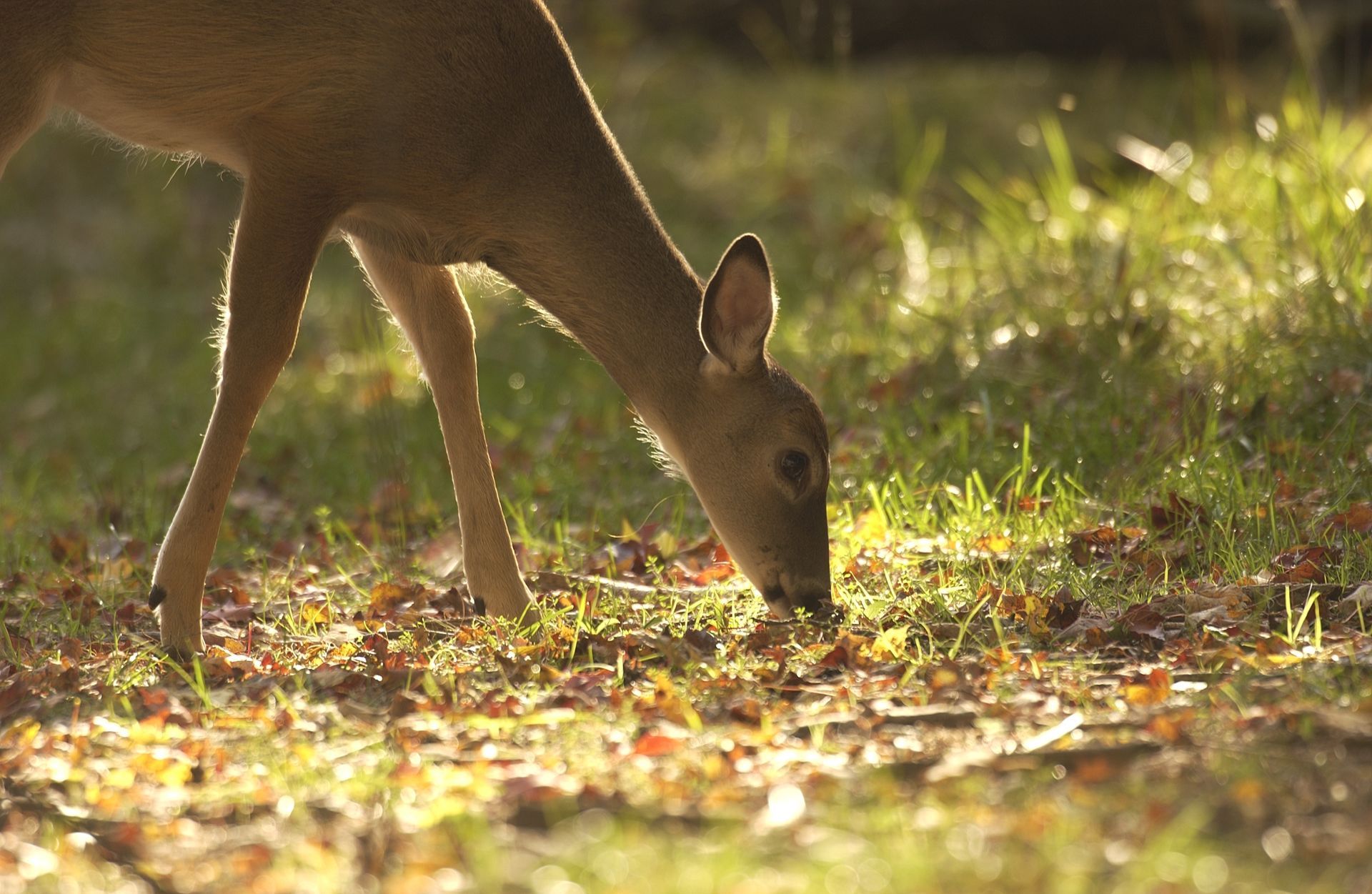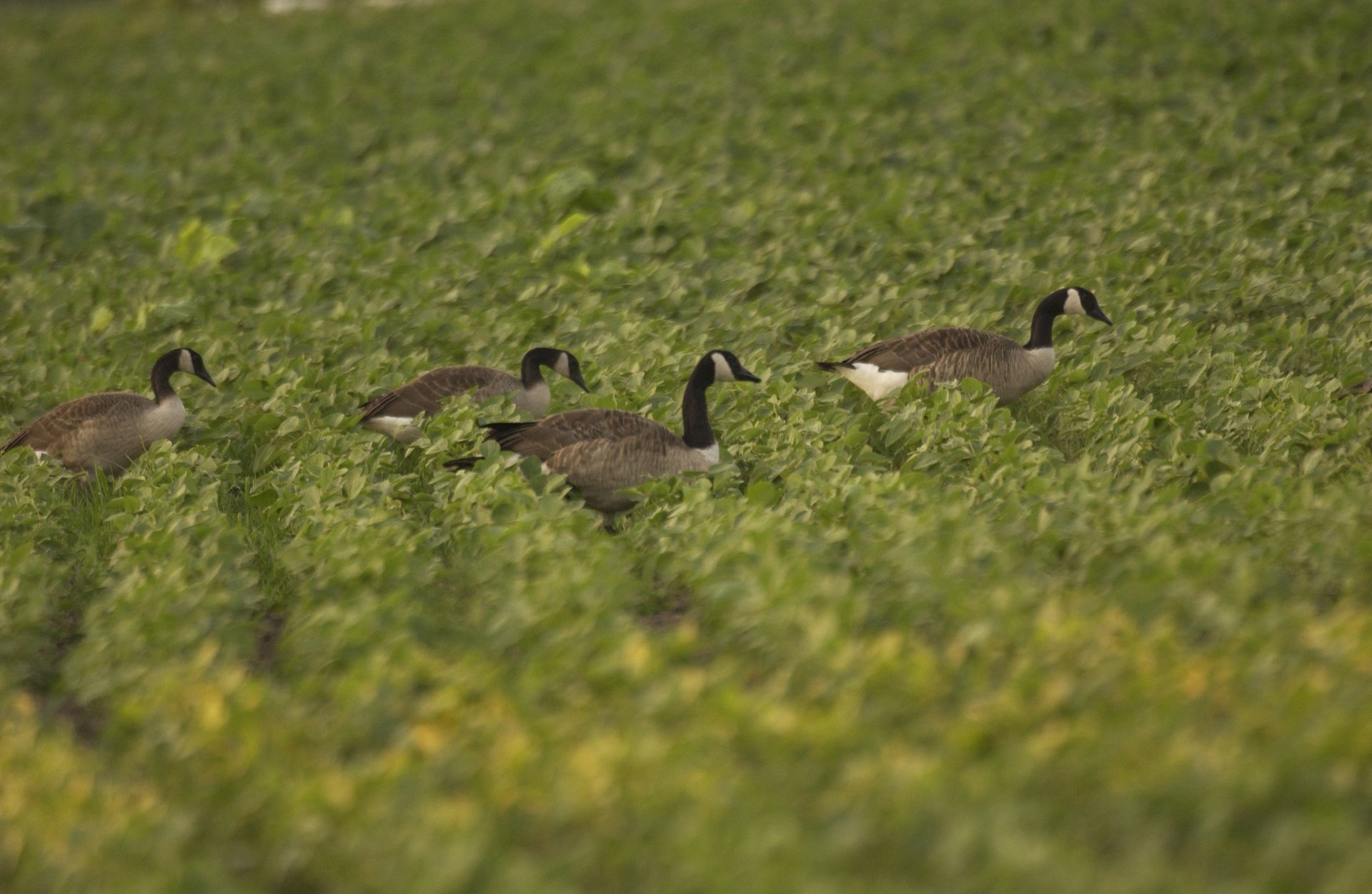Protecting Property, Respecting Wildlife: Damage Control Permits
39 days until waterfowl season begins.
69 days until archery deer season begins... 114 days until November 15th.
As agricultural professionals reach the ‘knee-high by July’ agenda and crops continue to grow, issues like disease and wildlife pests continue to impact crop production. Farmlands and gardens become an all-you-can-eat buffet option for wildlife like deer, geese, and sandhill cranes; however, landowners who fall victim to this damage have a few options available, depending on the nuisance species.
Wildlife damage permits can help ease the harm done to agriculture, private property, human health and safety, and recovery of protected wildlife, according to the US Fish and Wildlife Service 3-200-13: Migratory Bird – Depredation. For sandhill cranes in particular, permits can be obtained through the U.S. Fish and Wildlife Service through an application process due to their federal protection status. Those experiencing the damage, responsible for permit compliance, and having the authority to implement nonlethal measures can apply for the depredation permit to provide short-term damage relief. However, USFWS requires the use of non-lethal deterrents like hazing before issuing a permit, which should be continued in addition to lethal measures once a permit is obtained. More information about USFWS depredation permits for sandhill cranes and the different orders can be found on the Migratory Bird Permit Office Annual Report.

Deer damage shooting permits can be obtained through the Michigan Department of Natural Resources to kill outside of the determined deer season. Some of the negative impact perceived by large deer populations occurs due to the damage to crops, especially agricultural damage. To inquire about deer permits, contact your local field office or 517-284-9453 (dnr-wildlife@michigan.gov). Before issuing a permit, staff from the wildlife division may need to visit the site to determine the extent of the damage. Hunters who are successful in fulfilling the allotted permit can harvest the deer or consider donating the meat to Hunters Feeding Michigan. Regulations for deer damage shooting permits align closely with typical hunting regulations; however, a full list of the out-of-season regulations can be found on the DNR website.

Goose damage presents similarly to the issue with other nuisance populations, requiring a permit for out-of-season hunting. The permits are issued by a Conservation Officer or Wildlife Biologist following inspection on a case-by-case basis, similar to deer damage permits. Nests and eggs can be destroyed by contractors if applications are submitted before the deadline and are approved by the DNR to control nuisance or aggressive geese. More information regarding the process, regulations, and a list of available contractors for nuisance goose control can be found on the DNR website for Canada Geese Permits.

Although hunting seasons are limited for most species, wildlife damage can continue throughout the growing season, leading to increased crop loss, detrimental to everyone, especially those able to generate revenue based on crop yield. As hunters, it does not hurt to reach out to local farmers to see if they need assistance with filling their damage permits, as they can be overwhelmed with working in the fields during the growing season. The Hunter Access Program lands are an additional option in which many landowners put up their land for assistance in wildlife management; however, these lands can often be utilized only during the pre-determined hunting seasons. There are many options available for hunting and recreation across the Great Lakes State. It is up to each of us to explore what is right for ourselves while abiding by the laws put in place. Additionally, MUCC's On the Ground program works with partners like the DNR to actively enhance wildlife habitat, which can also help remove some pressure from croplands nearby. The backbone of the habitat work comes from volunteers passionate about conservation. If you are interested in helping out at our next project, take a look at our upcoming opportunities.
Recent Posts



